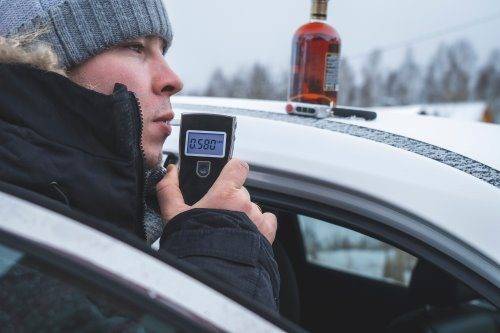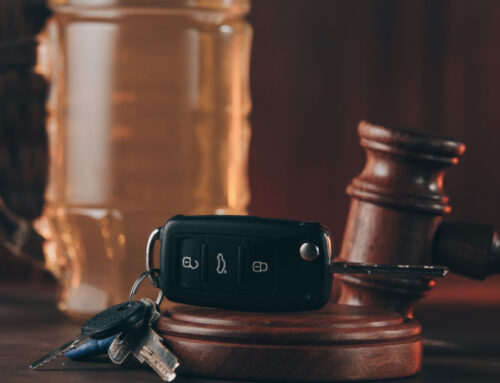If the police pull you over and ask you to take a breath test, can you refuse? Can the police require you to provide a blood or urine sample for chemical testing if you refuse a breath test? What happens if you still refuse to provide a sample? These are important questions, and they do not have simple answers.
Understanding your legal rights and obligations regarding chemical testing during a DUI stop in Arizona requires an understanding of two different – but related – legal issues. The first issue is your right to be free from unreasonable searches and seizures under the Fourth Amendment to the U.S. Constitution. The second issue is your obligation to comply with Arizona’s implied consent law.
Your Rights Under the Fourth Amendment
The Fourth Amendment to the U.S. Constitution protects citizens against unreasonable searches and seizures—including warrantless seizures in most cases. It states, in full:
“The right of the people to be secure in their persons, houses, papers, and effects, against unreasonable searches and seizures, shall not be violated, and no Warrants shall issue, but upon probable cause, supported by Oath or affirmation, and particularly describing the place to be searched, and the persons or things to be seized.”
In the centuries since the passage of the Bill of Rights, the U.S. Supreme Court and other courts around the country have interpreted the Fourth Amendment’s protection against unreasonable searches and seizures on numerous occasions, and they have clarified (to an extent) what constitutes a “reasonable” search or seizure. They have also recognized various circumstances in which the police can “reasonably” conduct a search or seizure without a warrant.
How does the Fourth Amendment apply to chemical testing during a DUI stop? Taking a sample of your breath, blood, or urine is a form of seizure. Thus, during a DUI stop, the police must comply with the Fourth Amendment. This means that they cannot conduct a search or seizure unless either (i) they have a warrant or (ii) an exception to the warrant requirement applies.
Since the police typically won’t have a warrant during a DUI stop, in the vast majority of cases, their ability to conduct chemical testing relies on the availability of exceptions to the Fourth Amendment’s warrant requirement. So, when isn’t a warrant required?
While there are various exceptions to the Fourth Amendment’s warrant requirement, the most relevant exception here is the exception based on voluntary consent: If you voluntarily consent to a search or seizure, then the police don’t need a warrant to conduct one.
Your Obligations Under Arizona’s Implied Consent Law
This brings us to Arizona’s implied consent law. Under Section 28-1321 of the Arizona Revised Statutes:
“A person who operates a motor vehicle in this state gives consent. . . to a test or tests of the person’s blood, breath, urine or other bodily substance to determine alcohol concentration or drug content if the person is [for DUI]. The test or tests chosen by the law enforcement agency shall be administered at the direction of a law enforcement officer having reasonable grounds to believe that the person was driving or in actual physical control of a motor vehicle in this state either:1. While under the influence of intoxicating liquor or drugs[; or,] 2. If the person is under twenty-one years of age, with spirituous liquor in the person’s body.”
The law also states that “[a] failure to expressly agree to the test or successfully complete the test is deemed a refusal.” In short, by driving in Arizona, you automatically give your consent to a chemical test in the event that the police pull you over on suspicion of DUI. If you refuse a test, you can be penalized for your refusal—and it doesn’t matter whether or not you are guilty of DUI.
So, What if You Refuse Chemical Testing During Your DUI Stop?
Given that voluntary consent is an exception to the Fourth Amendment’s warrant requirement, and given that drivers provide their implied consent to chemical testing under Arizona law, what does this mean if you refuse chemical testing during your DUI stop?
It depends. While the Fourth Amendment provides protection in some cases, its “voluntary consent” exception is a powerful tool for police and prosecutors. As quoted above, Section 28-1321 not only establishes consent but it also requires DUI suspects to “expressly agree” to chemical testing.
However, in 2016, the Arizona Supreme Court held that a DUI suspect does not provide “voluntary consent” if a police officer coerces him or her. Thus, despite Arizona’s implied consent law, the consent provided based on coercion does not relieve the police of the obligation to obtain a warrant. Specifically, the Court stated that “[c]onsent cannot be deemed to be given ‘freely and voluntarily’ if the subject of a search merely acquiesces to a claim of lawful authority.”
Yet, in a subsequent decision, the Arizona Supreme Court held that a police officer does not coerce a DUI suspect simply by informing the suspect of the risks of refusing consent under Arizona’s implied consent law. The Court held that determining whether a suspect’s consent is voluntary requires consideration of the “totality of the circumstances” under which the suspect’s consent is given.
As a result, in most (but not all) cases, the Arizona courts are likely to find that a suspect’s consent to chemical testing given during a DUI stop is voluntary. The police have procedures that they follow in order to comply with the Fourth Amendment and Arizona’s implied consent law. If the police inform you of the risks of violating the implied consent law, this does not render your consent invalid. Conversely, if the police inform you of the risks and you refuse a test, imposing penalties under the implied consent law will not likely violate your Fourth Amendment rights.
Talk to a Phoenix DUI Defense Lawyer in Confidence
With all of that said, there are exceptions, and you should never make assumptions about your legal rights or the defenses you have available. If you are facing a DUI charge or implied consent refusal charge in Arizona (or both), you can call 480-405-7922 or contact us online for a free consultation.






